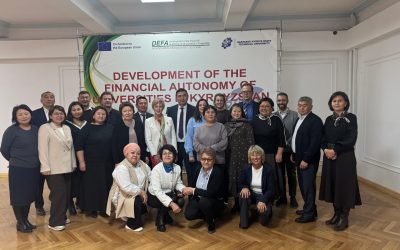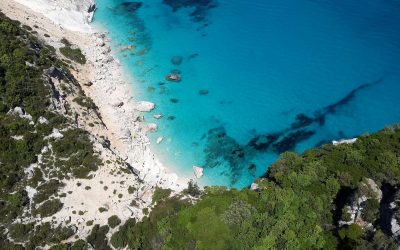Scientific research in Tunisia is at a crucial point in its development, with strong commitment from academic institutions to promote innovation and global competitiveness. However, despite the progress made, Tunisian universities still face numerous challenges, including the need to improve research governance, institutional autonomy, and the financial sustainability of projects. A key aspect for the future of research in Tunisia is the creation of an environment that fosters collaboration between universities, research centers, and the private sector, as well as the internationalization of research practices.
It is in this context that the DIRASA project assumes a fundamental relevance, offering an opportunity to strengthen the competencies of Tunisian universities, promote effective research management, and build bridges of cooperation with the European academic world.
DIRASA has organized a series of field visits across Europe: after visits in Italy, at the University of Pavia and the University of Pisa, the cycle concluded at the University of Rouen Normandie, providing Tunisian partners with a unique opportunity to exchange best practices in Europe.
Visit to Pavia: institutional autonomy and research infrastructures
The field visit to the University of Pavia focused on the theme of university autonomy and academic research management. Topics covered included research performance evaluation, strategic monitoring, and best practices in research management. The discussion also addressed how to optimize collaboration between universities and research centers, as well as how to develop policies to ensure the quality and sustainability of research projects.
The visit also included moments of exchange with leaders of research excellence centers, providing participants with practical insights to improve research management in their academic contexts
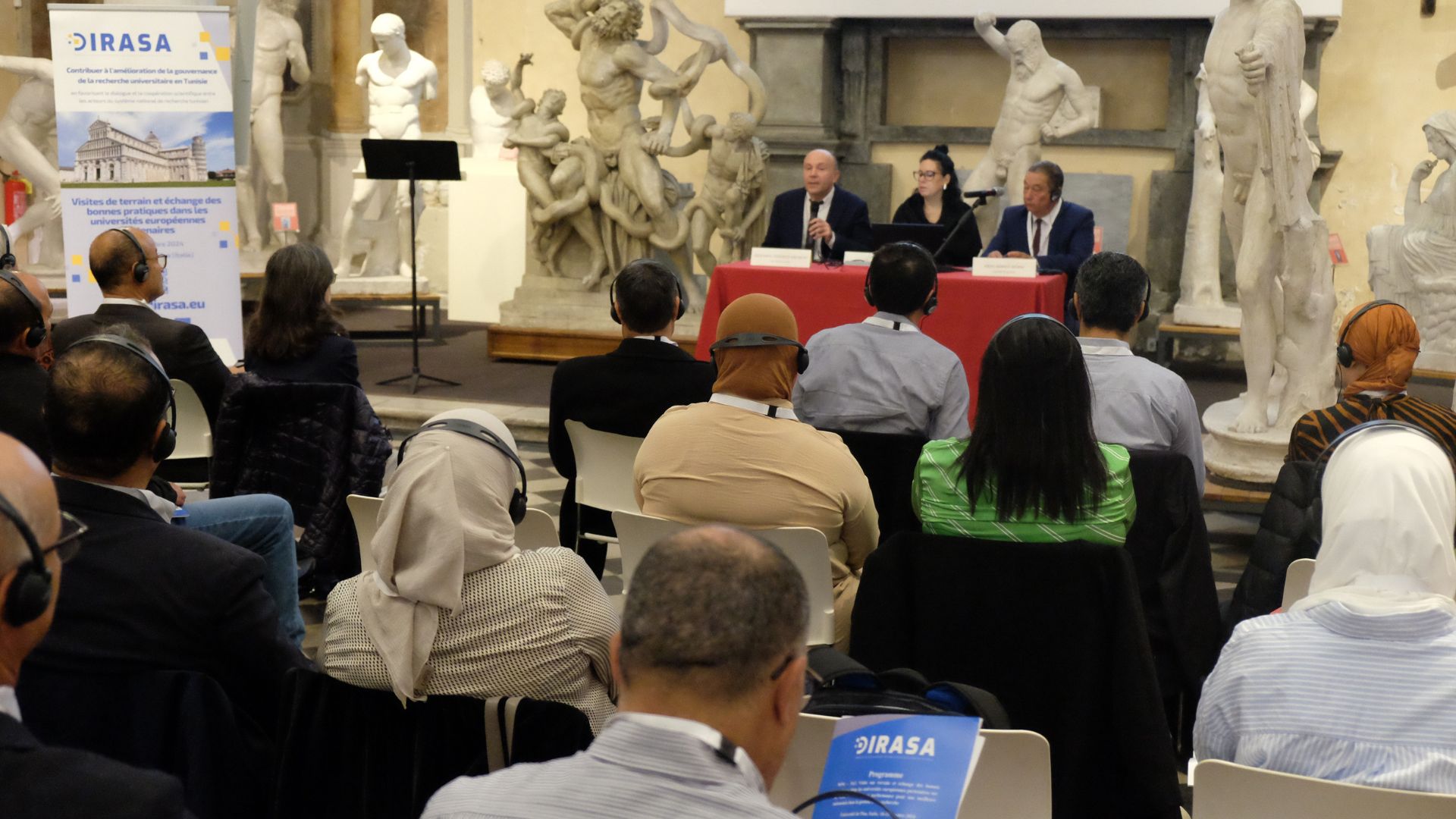
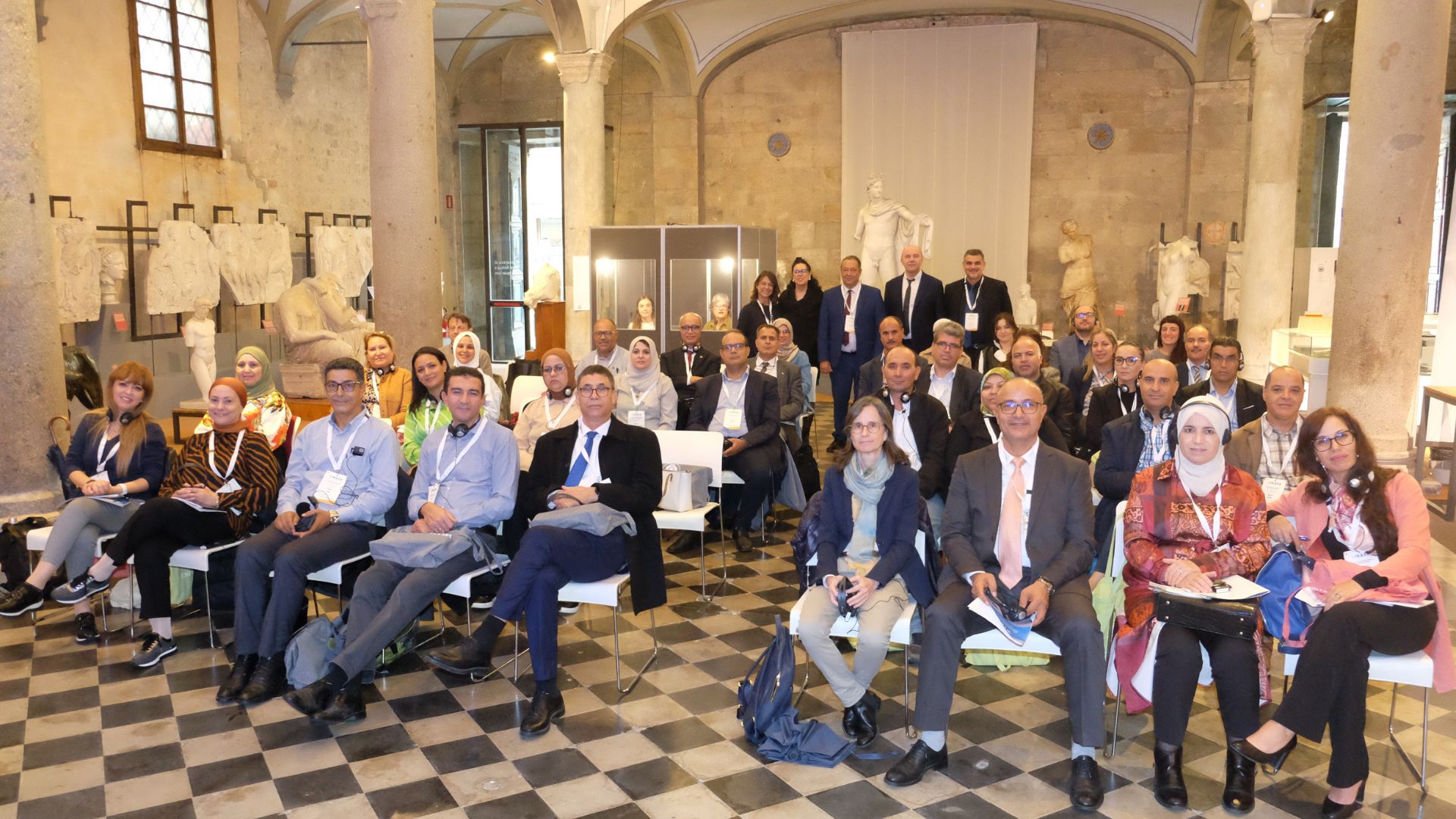
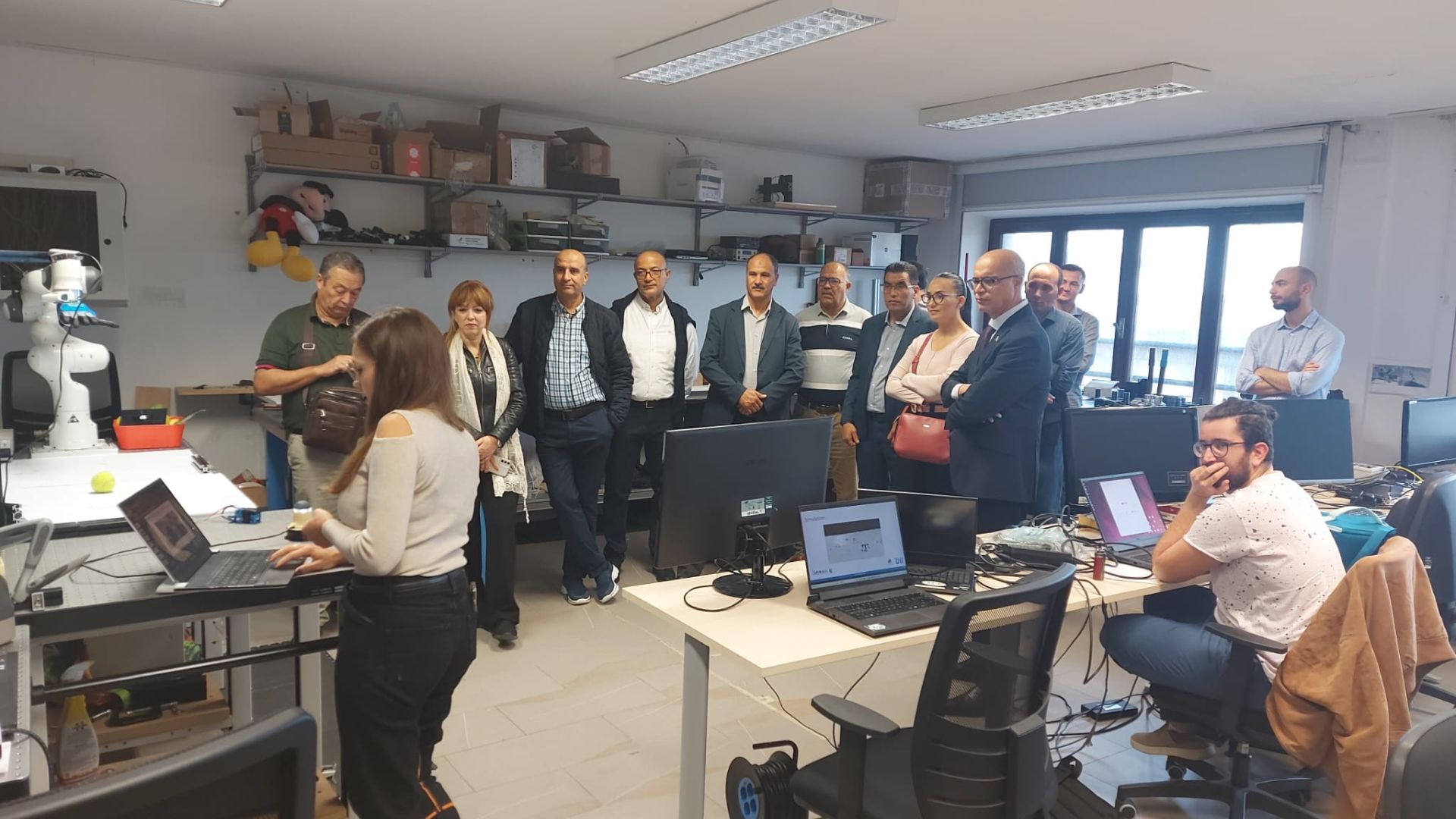
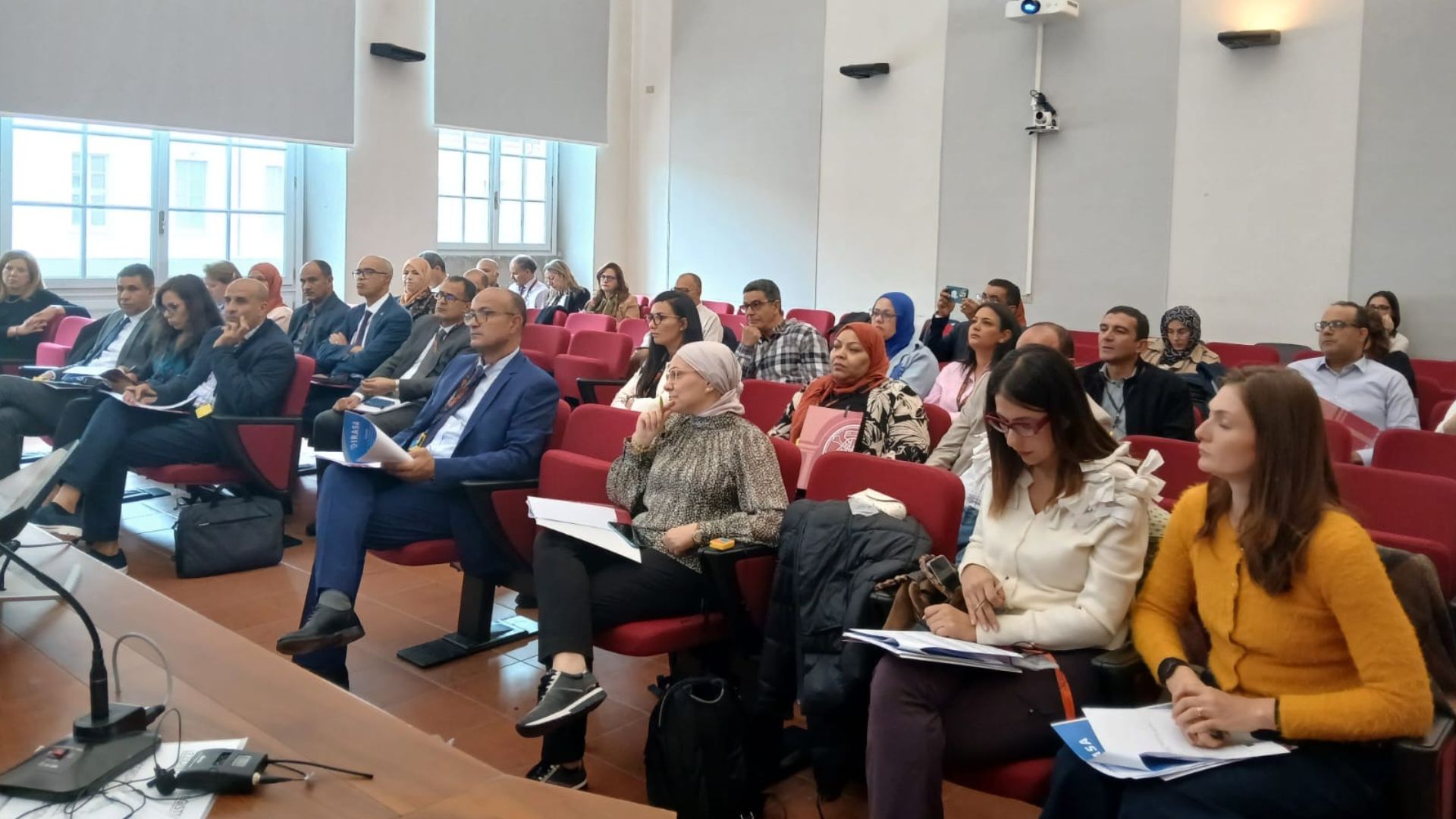
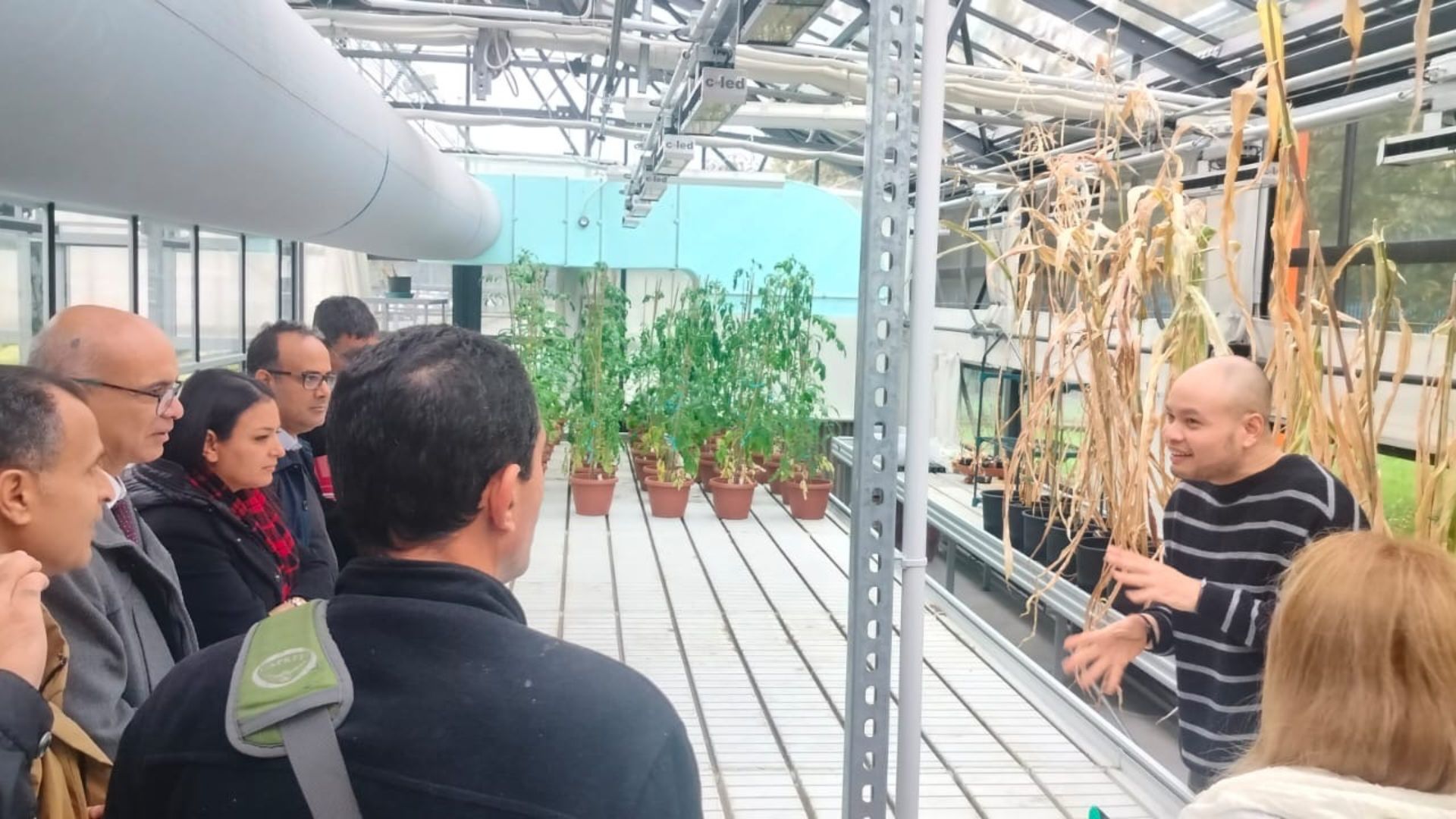
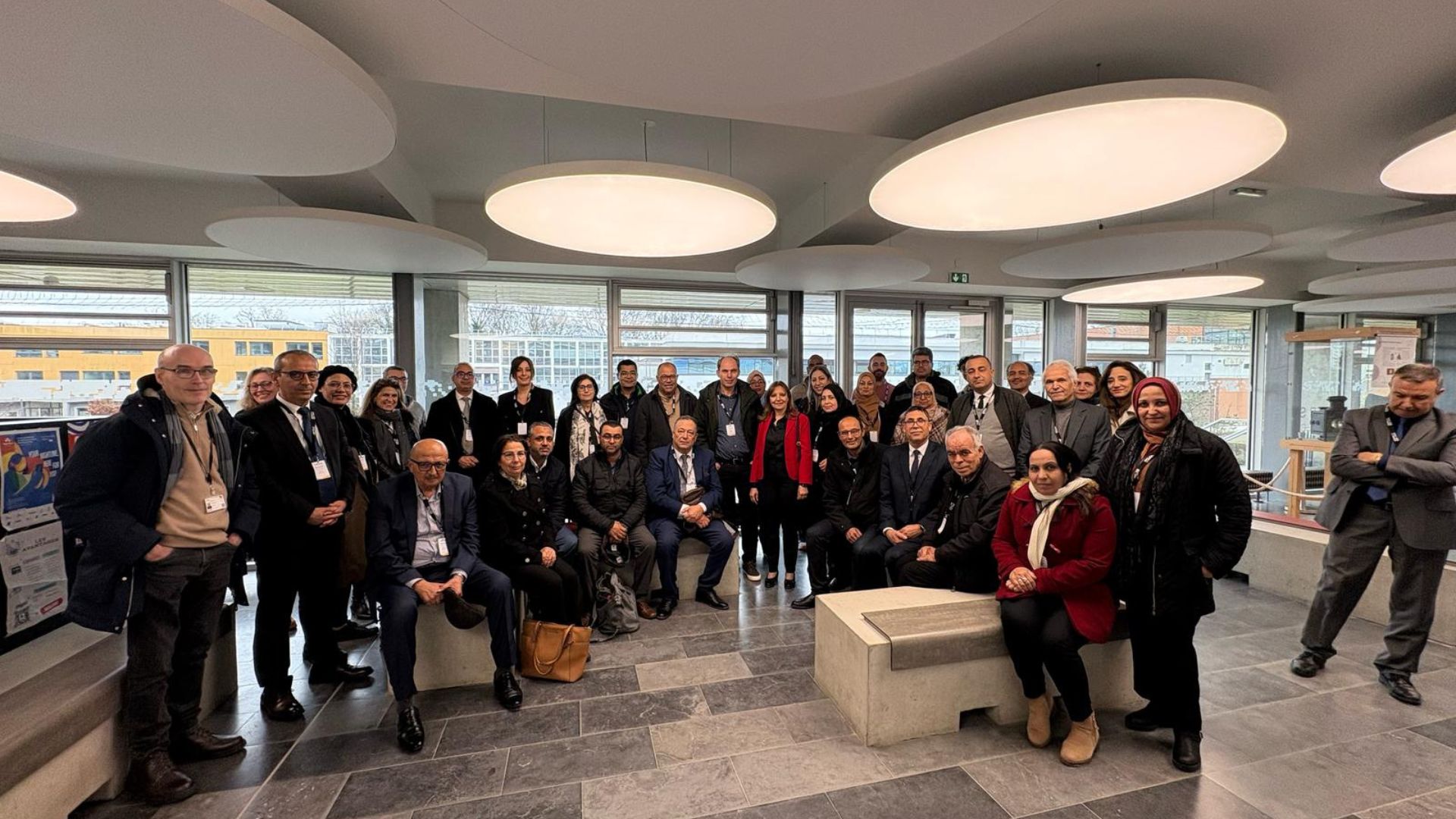
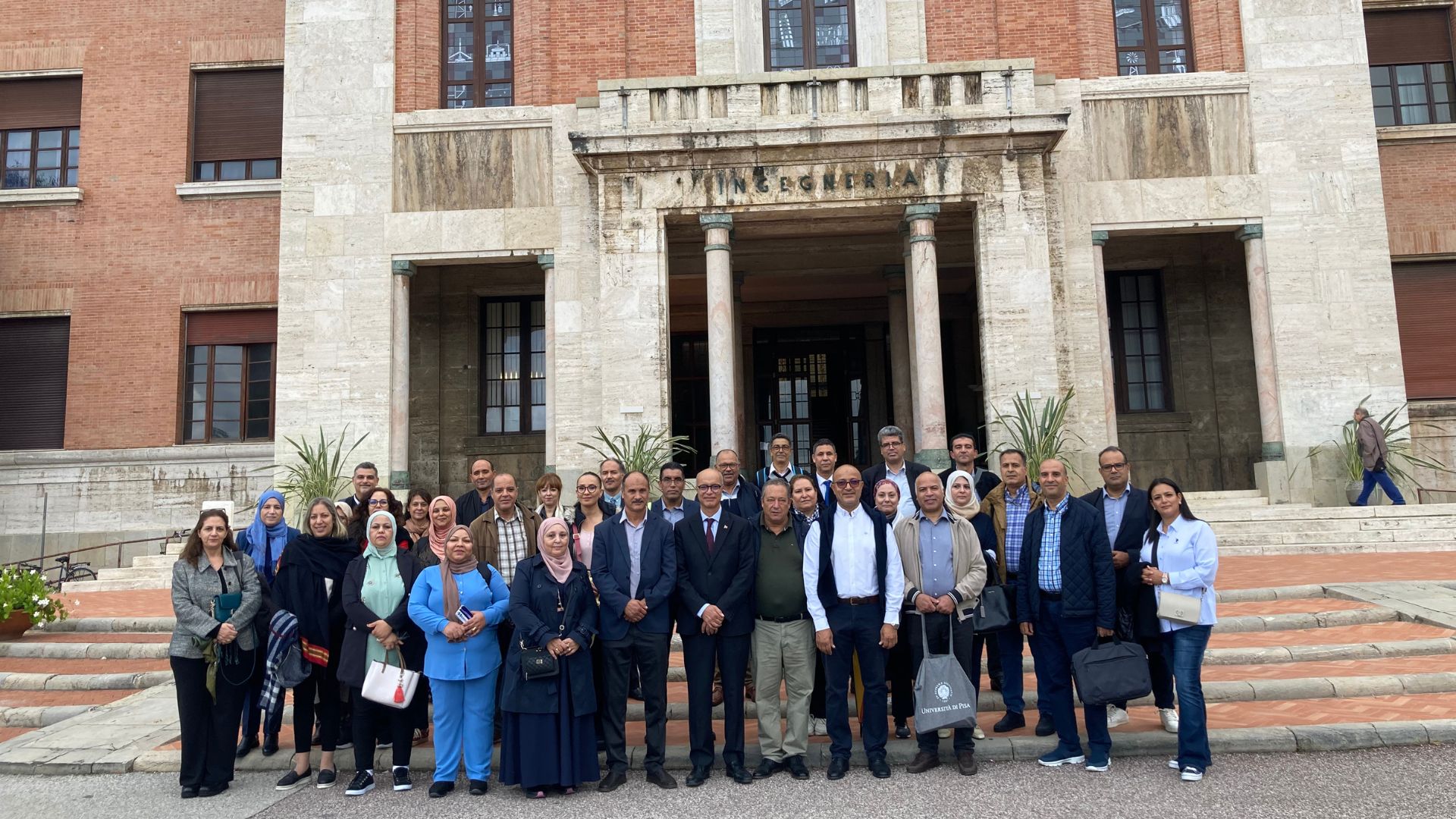
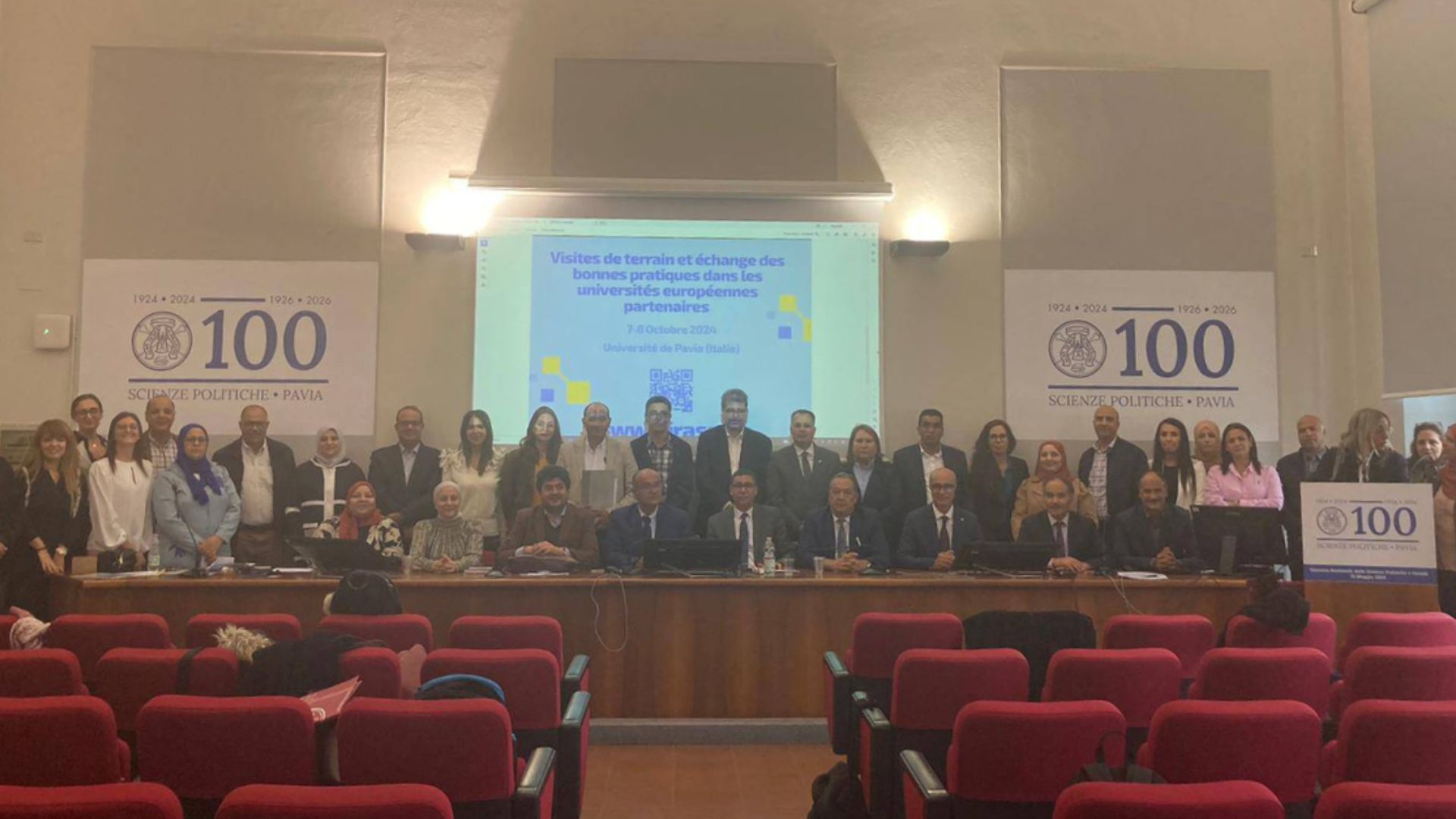
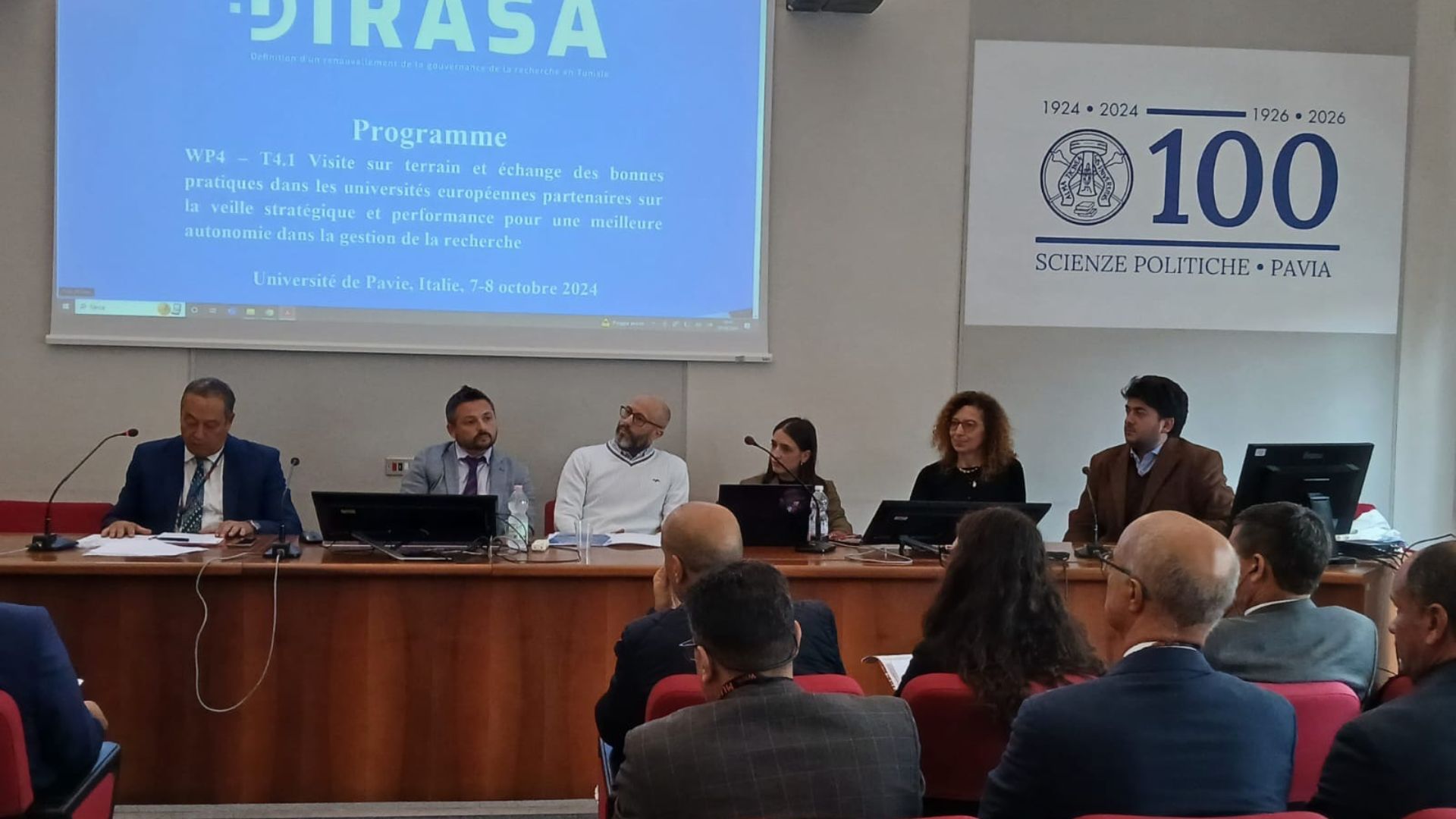
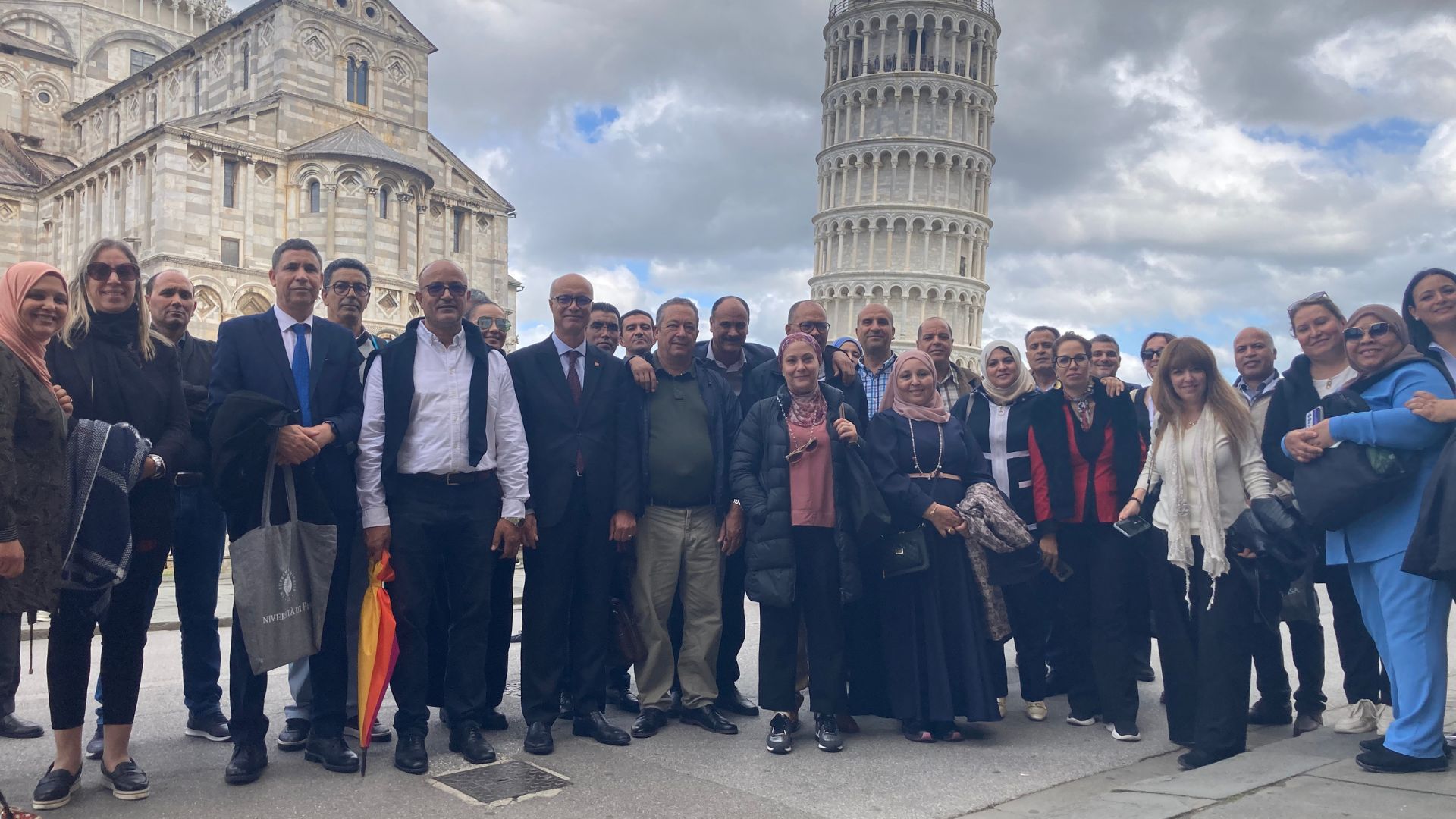
Stop in Pisa: funding models and internationalization strategies
At the University of Pisa, the focus was on research management, particularly quality, sustainability, and international collaboration. Participants had the opportunity to explore best practices in academic research management, quality policies in research, strategies to promote research sustainability and innovation, and techniques for monitoring and evaluating academic performance.
Participants visited the E. Piaggio Center and various university departments, delving into topics such as models of support for researchers, integrated approaches to research and innovation. This experience provided ideas to enhance scientific research processes in Tunisia, fostering exchanges between researchers, joint training programs, and the sharing of best practices.
Rouen: research performance and valorisation strategies
The final visit in Rouen emphasized research governance and scientific valorisation strategies. Participants explored the role of research departments in improving academic performance and scientific impact, methodologies for monitoring research quality and productivity, and the valorisation of research results through technology transfer and collaboration with the private sector.
Visits to the ECODIV, M2C, GPM, and CORIA laboratories provided concrete examples of advanced research facilities and their applications in environmental sciences, materials physics, and energy technologies
A learning and cooperation journey
These field visits represented a key moment to strengthen collaboration between partner institutions and identify effective strategies to improve research management at Tunisian universities. The exchanges with Italian and French models allowed participants to gather valuable insights to promote greater institutional autonomy and more efficient management of academic research.
The DIRASA project continues to build bridges between Europe and Tunisia, fostering an open dialogue on innovation and a coordinated development of Tunisian scientific research at national level.
For more information visit https://dirasa.eu/en/ and follow us on Facebook, X and LinkedIn.
About the project
DIRASA – Définition d’un renouvellement de la gouvernance de la recherche en Tunisie is a project funded within the Erasmus+, Capacity Building in the field of higher education. Capacity-building projects in the field of higher education are transnational cooperation projects based on multilateral partnerships, between Higher Education Institutions and organisations from EU Member states or countries associated to the Programme and third countries not associated to the Programme.
Partners
- Sfax University (Tunisia, coordinator)
- Université de Tunis (Tunisia)
- Université de Tunis El Manar (Tunisia)
- Carthage University (Tunisia)
- University of Sousse (Tunisia)
- Université de Gabes (Tunisia)
- Université de la Manouba (Tunisia)
- University of Monastir (Tunisia)
- Université Virtuelle de Tunis (Tunisia)
- University of Kairouan (Tunisia)
- Université de Gafsa (Tunisia)
- Université of Jendouba (Tunisia)
- Université Ez-Zitouna (Tunisia)
- Ministry of Higher Education And Scientific Research (Tunisia)
- Agence Nationale de la Promotion de la Recherche Scientifique (Tunisia)
- UNIMED – Unione delle Università del Mediterraneo (Italia)
- Università di Pisa (Italy)
- Università degli Studi di Pavia (Italy)
- CESIE (Italy)
- Université de Rouen Normandie (France)
For further information
Read more about DIRASA,visit https://dirasa.eu/ and follow us on Facebook, X and LinkedIn.
Contact Alessia Valenti: alessia.valenti@cesie.org








